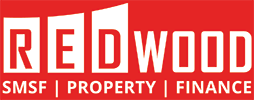Self-managed super funds (“SMSF”) are the fastest growing part of Australia’s superannuation industry and are the preferred vehicle for professionals and business entrepreneurs. Australia’s Superannuation Industry is worth $1.6 billion dollars with over $550 billion represented by SMSFs.
There is incredible growth in SMSFs for the following reasons:
- Control
- Tax effectiveness
- Potential cost savings
- Flexibility
Take control of your super
Since the global financial crisis, many Australians have seen limited (if any) returns on their superannuation. With compulsory superannuation in Australia, more and more Australia’s would like control over the investments and are adverse to “industry funds” managing their money, especially with no visibility over investments.
As trustees of an SMSF, you will determine the investment strategy of the fund and take control of your investments. This may include shares and fixed income, direct property or alternative investments, such as artwork and collectables in accordance with your stated investment strategy
For many business owners, one of the unique aspects of an SMSF is the potential ability of the SMSF to purchase the business’s property and then lease that property back to the business. Investing in property through your SMSF is an effective strategy however it is imperative to seek advice before proceeding.
SMSFs can be more tax effective
An SMSF is a trust, obvious tax advantages occur in the tax rate applied of 15% as opposed to the marginal tax rate of usually 46.5%.
While all super funds are subject to the same taxation arrangements, as an SMSF allows you to control the investment selection and the timing of any investment, you can potentially exercise greater control over taxation outcomes. Through either strategic investment planning (such as maximising franking credits) or internal structuring, tax can be significantly reduced.
SMSFs can save you money
Many trustees save money by running their own SMSF. There are no investment manager fees, no entry or exit fees, no financial adviser fees, and no weekly administration fees. There are, of course, costs involved in running your own SMSF however costs are lower in the long-term than industry funds. Refer to our analysis of SMSF costs as opposed to industry funds. This should remove any consideration of the superannuation minimum balance promoted by industry funds.
Flexibility
SMSFs can potentially be more flexible than other super funds, after all the investment decision is yours. The flexibility may extend to the implementation of more complex strategies, such as investing in direct property using your SMSF and shares or fixed income. You have complete transparency over investments made, when was the last time you saw that with your industry fund?
If you are considering setting up an SMSF, please call Redwood Advisory on 1300 790 110 or apply now at https://redwoodadvisory.com.au/establishment/
Disclaimer:
The content has been prepared without taking account of the objectives, financial situation or needs of a particular individual and does not constitute financial product advice. Individuals should seek professional advice prior to investing in commercial property.







